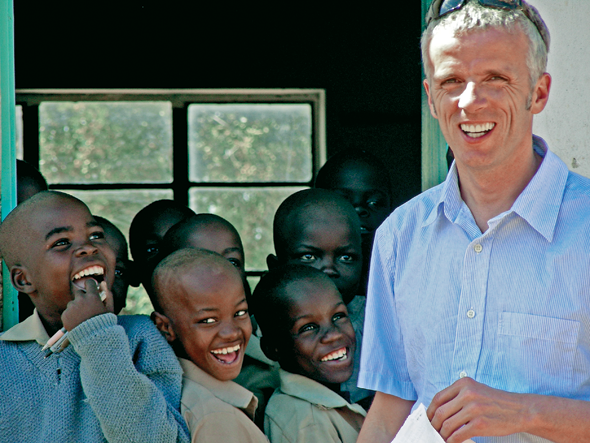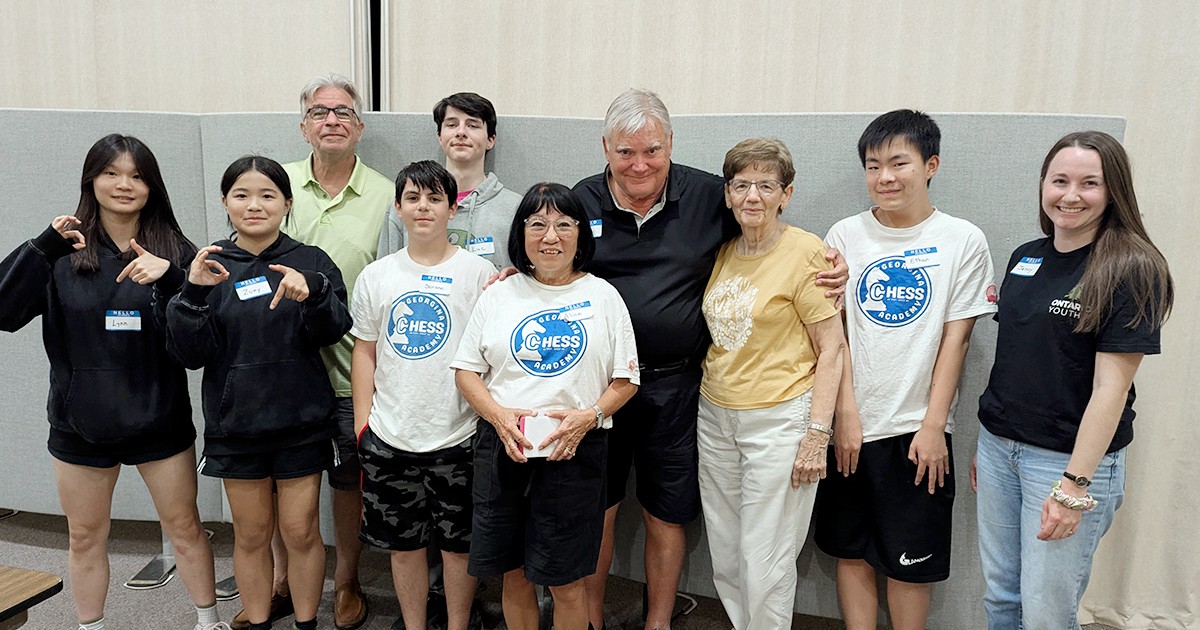 I attend Cariboo Hill Temple in Burnaby, B.C. I have worshipped there since moving to Vancouver in 1993. Over the years, I have been involved in many different activities, such as serving as a youth volunteer and greeting people at the door on Sundays.
I attend Cariboo Hill Temple in Burnaby, B.C. I have worshipped there since moving to Vancouver in 1993. Over the years, I have been involved in many different activities, such as serving as a youth volunteer and greeting people at the door on Sundays.
* * *
I work in public schools teaching deaf and hard-of-hearing students. My students have varying degrees of hearing loss and participate in regular classrooms. I currently support 18 students in 10 different schools.
* * *
I've always had a sense of social responsibility, both in my work in the school system and on a more global scale. I feel that God has specifically positioned me to spread the word about the situation in Zimbabwe and Africa. In some of the schools that I work, I've had numerous opportunities to develop and oversee projects that support development in Africa. I've found that children are always eager to help when they learn about others who are in need.
* * *
I'm continually challenged by Jesus' story of the Sheep and the Goats in Matthew 25, particularly the King's response in verse 40: “Truly I tell you, whatever you did for one of the least of these brothers and sisters of mine, you did for me.”
* * *
In 2000, I took my first trip to Zimbabwe. Since that time, Africa has had a profound impact on my life on many different levels. Last July marked my 10th visit. I've spent much of my time at The Salvation Army's Tshelanyemba Hospital, which is located in the south of Zimbabwe.
* * *
The theme of social and global responsibility plays a big part in my involvement in Africa. When you see children who are too poor to attend school, when you witness people who are malnourished and lacking food, you are prompted to do something. And when you begin to see people as they are meant to be seen, the experience changes you. They become more than just poor people, they become your friends, your neighbours. Just as in Canada, Zimbabweans want a home, food to eat, people to love them and the resources to take care of their children. These needs are universal, but when you live in rural Zimbabwe, you see the starkness of people struggling to have enough food to eat and the money to pay school fees.
* * *
I've always been moved by the resilience of the Zimbabwean people. Amid all their struggles, they maintain a smile, a welcoming spirit and an unwavering faith. When I think of my involvement in Africa, I often feel a bit selfish. I gain way more from my time there than I could ever give or contribute.
* * *
After living in Tshelanyemba for six months in 2006, I started the Silokwethemba Project. Silokwethemba is an Ndebele word meaning “we have hope.” Despite all the struggles of daily life, Zimbabweans maintain a steadfast hope that things will be better. In 2009, the Silokwethemba Project provided assistance for more than 1,000 people. In the Tshelaneymba area, 720 orphans had their school fees paid and 160 people at the hospital received assistance with food. This year we also branched out to Rwanda, feeding over 130 preschoolers in a school north of Kigali.
**
We are also involved in many community-based projects. The Silokwethemba team consists of a core group, mostly from the Vancouver area, who assist with fundraising and administration. There are often days when I feel like I have two full-time jobs, working as a teacher and supporting the Silokwethemba Project. I really appreciate how God throws opportunities at us to challenge and push us beyond our boundaries.
For more information, visit www.silokwethemba.org.
Photo: Max Vincent says that when you see children who are too poor to attend school, you are prompted to do something
In this Witness series, John McAlister, Senior Editor, interviews Salvationists from across the territory about their families, work, faith and involvement with The Salvation Army.









Comment
On Monday, July 14, 2014, Jan Corley said:
On Tuesday, July 20, 2010, Concerend Nubiuwa said:
On Saturday, December 5, 2009, Major John Gerard(R) said:
Leave a Comment